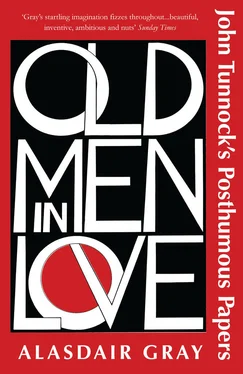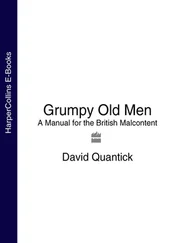Some great intelligences disagreed — Dean Swift and Doctor Johnson, Christians with some faith in God and common sense but none in philosophical systems, Christian or scientific. Johnson said of the Essay on Man , “Never has penury of knowledge and vulgarity of sentiment been so happily disguized.” And Voltaire thought the machinery of the universe imperfect. He cartooned Leibnitz as Dr Pangloss who travels through Europe with his innocent pupil, Candide. They find Protestant states brutalized by wars for the glory of a Prussian king, Catholic states where questioners are tortured and burned by the Inquisition, Holland where all religions are tolerated but it is a crime to be poor. Accompanied by a sailor they arrive at Lisbon, capital of Portugal, in time for the 1755 earthquake.
They felt the earth tremble beneath them. The sea boiled up in the harbour and broke the ships which lay at anchor. Whirlwinds of flame and ashes covered the streets and squares. Houses came crashing down. Roofs toppled on to their foundations and the foundations crumbled. Thirty thousand men, women and children were crushed to death under the ruins.
The sailor chuckled: “There’ll be something worth picking up here.”
He rushed straight into the midst of the debris and risked his life searching for money. Having found some, he ran off with it to get drunk; and after sleeping off the effects of the wine, he bought the favours of the first girl of easy virtue he met amongst the ruined houses with the dead and dying all around. Pangloss pulled him by the sleeves and said, “This will never do, my friend; you are not obeying the rule of Universal Reason.”
“Bloody hell,” replied the other. “I am a sailor and have trampled on the crucifix four times in my trips to Japan. I’m not the man for your Universal Reason.”
Candide had been wounded by splinters of flying masonry and lay helpless in the road, covered with rubble.
“For heaven’s sake,” he cried to Pangloss. “Fetch me some wine and oil! I am dying.”
“This earthquake is nothing new,” replied Pangloss, “the town of Lima in America experienced the same shocks last year. The same causes produce the same effects. There is certainly a vein of sulphur running under the earth from Lima to Lisbon.”
“Nothing is more likely,” said Candide,“but oil and wine, for pity’s sake!”
“Likely!” exclaimed the philosopher. “I maintain it’s proved.”
Yet something in humanity refuses to lie down under disasters and injustices, hence the French and other revolutions aiming to make a just world for everyone — no wonder great poets welcomed it. In Britain the revolution was purely industrial, making big landowners wealthier and enlarging the middle class. Dickens and Hardy showed how miserable this made life for most folk, though Dickens usually softened that message by giving happy endings to pleasanter characters. Wealth gained or sought by evil means inspired most great masterpieces — Goethe’s Faust , Stendhal’s Red and Black , Wagner’s Ring , Dostoevsky’s Crime and Punishment, all Ibsen’s plays. Strangest of all, best-sellers about supernatural, evil bargains were written by folk without faith in the supernatural — Frankenstein, Dr Jekyll and Mr Hyde, Trilby, Dracula, A Picture of Dorian Gray, The Wild Ass’s Skin . The last is Balzac’s only supernatural novel. His realistic ones indicate that criminal bargains are well worth striking if you are smart enough to keep the gains. I did not want to believe that. I was sure that all great efforts to achieve liberty, equality and fraternity in Cromwell’s Britain, Robespierre’s France, Lenin’s Russia had been good efforts, though powerful cliques had spoiled them by helping dictators seize power, power they mainly obtained in 1789 France and 1916 Russia when foreign armies invaded to stop the revolutions.
Despite which most children of even poor people have enough to believe life is basically good, and on this basis teachers and governments promote the lie that we need not question those running our states, because they are good states, and in safe hands. I decided to examine closely some states widely advertized as good and, without cynicism, show how the goodness was purchased by badness.
I did not glimpse all this in Renfield Street as I held in my hand the tattered book I bought for ninepence. The jacket told me the price when new had been 2/6, meaning half a crown, meaning 30 pence when 12 pennies made a shilling and 240 a pound. How queer that old money now seems! I still have and love that book. Among notes at the end I read that the author of the poem had been: John Davidson [1857–1909]. 9Born at Barrhead, Renfrewshire, son of a Dissenting Minister, Schoolmaster in Scotland until 1889 when he settled in London and published various plays and volumes of verse. He died in circumstances that suggested suicide . Barrhead is a small factory town in the Renfrew Hills six or seven miles south of Glasgow. It made lavatory pans, and I think could be reached by tram before 1963 when the trams were scrapped. I began thinking that another obscure individual in the west of Scotland (me) might write something great that would open people’s eyes as Davidson had opened mine. Great writers had been trying to do so for centuries but their works were taught by teachers with eyes firmly shut, so the eye-opening effort was endless. When I tackled it I would be recentest in a line of great tacklers. The job was obviously endless.
At first my book was going to be a broad historical survey until a remark by Sherlock Holmes directed me to Winwood Reade’s Martyrdom of Man , which showed that survey had been written. Reed describes mankind originating in Africa when climate and land made clothing no problem and food was got easily. Overpopulation drove us into the valleys of Egypt and the Euphrates, where we could only feed our great numbers by inventing complex irrigation systems maintained by an intellectual minority. These were the first civilizations, since when civilizations had been ruled by elites using religion and armed forces to control the majority. The continual spread of humanity has ever since formed nations where warfare is unending. Both poverty and refusal to suffer it constantly drove folk to invent new means of livelihood, or plunder their neighbours, or do both at once. Scientific knowledge (said Reade, writing in 1872) was replacing religion as a way of mastering folk, which was why Europe had come to dominate the world. Men and women would only be freed from lives of torture by finding how to make good food cheaply out of minerals, and by solving the overpopulation problem through emigration to other planets.
The accuracy of Reade’s account cannot be improved and is not much hurt by ending in a glimpsed utopian future, just as the accuracy of Karl Marx’s view of history as class warfare is true despite his prophecy of a workers’ revolution creating a classless world where all government withers away. If global businesses ever make food or any essential thing cheaply they will always sell it as dearly as possible, to keep riches and poverty eternal. Davidson was not a Socialist and would have taken that for granted. I could never write a broad historical survey as good as Reade’s and Marx’s, so I decided to select three triumphant historical periods and show both their virtues and the devil’s bargain that created them from the viewpoint of real people. Plato’s Dialogues showed how Periclean Athens might be dramatized round Socrates. Browning’s poem Fra Lippo Lippi showed a way into Renaissance Florence. I took longer finding a guide into the glories and miseries of Victoria’s reign. What real person would help me to dramatize that over-weaning, self-satisfied nation brilliantly described by Dickens, George Eliot and Hardy? Even Sherlock Holmes’ tales are mostly about private fortunes created or inherited through crimes in India, Australia, America or piracy on the high seas. My only chance of a story that would not be adversely compared with theirs was to make it factual — not entirely factual for I would invent conversations — but factual enough to be supported by the historical evidence.
Читать дальше












